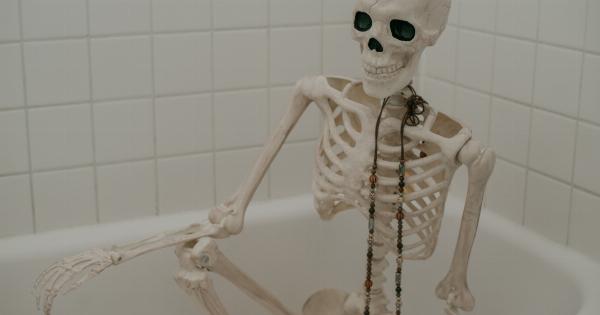The human body is an incredibly complex machine with many complex systems and organs that work in harmony to keep us alive and healthy. Although we can see and touch many of our body parts, there are a few that remain hidden from view.
Our internal organs and systems are responsible for many of the vital functions that keep us alive, including digestion, circulation, and respiration.
The Digestive System
The digestive system is a complex network of organs and glands that work together to break down food and absorb nutrients from it. The system is made up of the mouth, esophagus, stomach, small intestine, large intestine, rectum, and anus.
Each of these organs has a specific function in the process of digestion. Enzymes in the mouth help to break down food as we chew it, while acids in the stomach further break it down. Nutrients are absorbed by the small intestine and waste is eliminated through the rectum and anus.
The Cardiovascular System
The cardiovascular system, also known as the circulatory system, is responsible for transporting blood throughout the body. The system is made up of the heart, blood vessels, and blood.
The heart pumps blood through the blood vessels, which deliver nutrients and oxygen to the body’s tissues and organs. The blood also carries waste products away from the body’s cells and tissues.
The Respiratory System
The respiratory system is responsible for taking in oxygen and expelling carbon dioxide. The system is made up of the lungs, bronchi, trachea, nose, and mouth.
Air is taken in through the nose and mouth and travels through the trachea and bronchi to the lungs, where oxygen is picked up and carbon dioxide is released. The carbon dioxide is then expelled through the nose and mouth.
The Urinary System
The urinary system is responsible for eliminating waste products from the body. The system is made up of the kidneys, bladder, ureters, and urethra.
The kidneys filter waste products from the blood, which are then eliminated through the bladder, ureters, and urethra.
The Endocrine System
The endocrine system is responsible for producing hormones and regulating the body’s metabolism, growth, and development.
The system is made up of glands such as the pituitary gland, thyroid gland, and adrenal gland, which produce hormones and signal other organs to perform certain functions.
The Nervous System
The nervous system is responsible for controlling the body’s functions and transmitting information throughout the body. The system is made up of the brain, spinal cord, and nerves.
The brain receives information from the nerves and sends signals back to the body to control movement, sensation, and other functions.
The Muscular System
The muscular system is responsible for movement and is made up of muscles and tendons. The muscles are attached to bones and work together to move the body. Tendons connect the muscles to the bones.
The Skeletal System
The skeletal system is responsible for providing support and structure for the body. The system is made up of bones and cartilage. The bones protect the body’s organs and provide a framework for muscles to attach to.
Cartilage serves as a cushion between bones.
The Immune System
The immune system is responsible for protecting the body against disease and infection. The system is made up of white blood cells, lymphatic vessels, and lymph nodes.
The white blood cells attack and destroy foreign invaders such as viruses and bacteria, while the lymphatic vessels and nodes help to filter out waste products and remove dead cells from the body.
The Reproductive System
The reproductive system is responsible for producing offspring. The system is different in males and females, but both have organs such as the testes and ovaries, which produce hormones and gametes (sperm and eggs).
These gametes combine to form a fertilized egg, which can develop into a fetus.






























